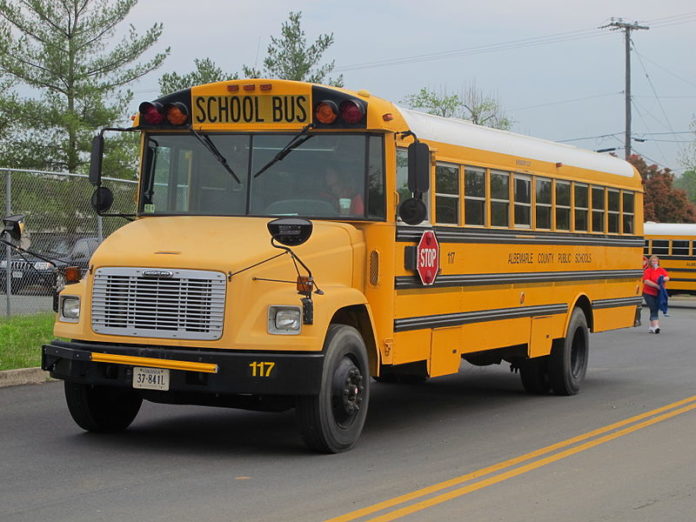(Developing: Updated with KNEA comment; edits throughout)
The Kansas Supreme Court on Friday upheld 2014 legislation that stripped due process rights from teachers, dismissing arguments that the bill was passed in the dead of night without much transparency.
The court found in favor of the Flinthills Unified School District in a lawsuit brought by a pair of teachers whose contracts were not going to be renewed in May 2015.
The teachers – Sallie Scribner and Mark McNemee – sued the district contending that the Legislature violated the state and U.S. Constitutions when lawmakers voted a year earlier to end teacher due process.
Until then, teachers had the right to hearings if they were fired and had been on the job at least three years. Opponents of the proposal argued that teachers never really lost those rights, just that they were now decided by local school boards.
Lawyers for Scribner and McNemee contended that the legislation constituted a taking of their property in violation of the state and federal constitutions. They argued that the Legislature retroactively took away a vested right without due process.
While the court found that Scribner and McNemee may have had a property right, it noted that Kansas law expressly states that it can be removed by the Legislature. The court also ruled the Legislature provided sufficient time for teachers to be heard on the issue.
“The legislative process generally provides all the process that is due when the legislation results in the complete or partial deprivation of a protected property interests of more than a few individuals,” Justice Marla Luckert wrote on behalf of the court.
The court addressed the circumstances of how the legislation came about when the due-process amendment was tacked onto a Senate bill during an overnight debate in 2014.
The bill with the due process amendment passed in the early-morning hours of April 3, 2014 and three days later it passed the House and the Senate. It passed the House with the minimum number of votes required and just 22 votes in the Senate.
While the legislation may have not been vetted by a committee and passed in an unusually abbreviated period of time without public testimony, the circumstances did not rise to a constitutional violation, the court ruled.
Scribner and McNemee “argue that the legislative process gave them no notice or hearing. But they do not cite any case in which a court has imposed these notices and hearing requirements when legislation impacts a broad class of people caused the deprivation, which we assume the legislation has done here.
“Nor do they cite any laws or rules that prohibit the procedures used by the Legislature.”
The teachers’ criticisms “even if valid, do not equate to a constitutional violation,” the court ruled. “No one here dissuaded the affected people from lobbying, although as a practical matter, their window in which to do so was small if not nonexistent.”
Mark Desetti, lobbyist for the Kansas National Education Association, expressed disappointment in the court’s decision.
However, he pointed out that even a courtroom victory would have only benefited teachers who had earned the right to due process. It would not have applied to thousands of teachers who had not yet qualified for due process.
“We have consistently believed that our real remedy is ultimately in front of the Legislature,” Desetti said. “Our ultimate solution is before the Legislature.”
Advocates of teacher due process have pushed hard in recent years to get the Legislature to restore what it peeled away four years ago. This year, the House passed legislation restoring teacher due process, but it died in the Senate.
“We will continue to take that fight to the Kansas Legislature until we prevail,” he said.
Desetti expressed alarm at how the court found nothing wrong with how the Legislature passed the due-process law without much public input.
Legislators in this case “exploited their ability to act without transparency to strip teachers of due process and the court is saying, ‘They’re allowed to do that,'” Desetti said. “Wow. What does that say about anything in our legislative process?”
This is the second time the Kansas Supreme Court has upheld the bill eliminating due process for teachers.
Last year, the court upheld the law, rejecting a challenge from the Kansas National Education Association, which claimed the legislation was unconstitutional by grouping multiple topics into a single bill.















